She breaks silence yet remains silent
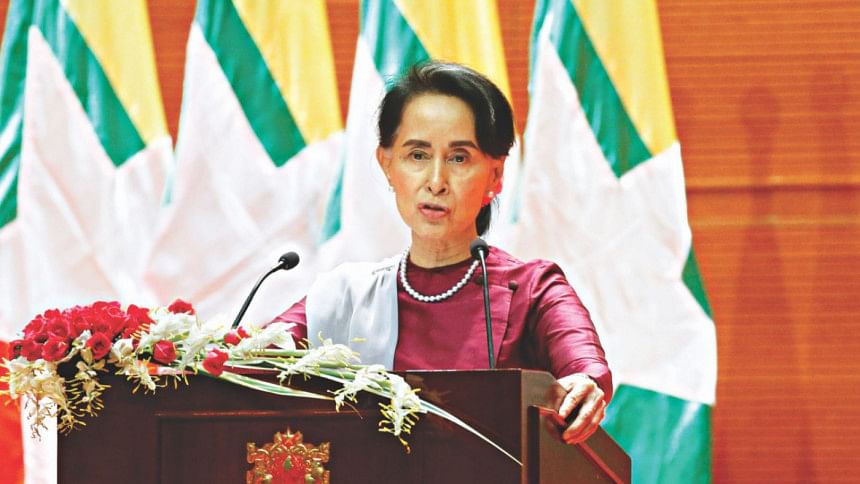
Myanmar's de facto leader Aung San Suu Kyi finally broke her silence on the Rohingya refugee crisis yesterday, insisting that her country was not "afraid of international scrutiny."
But her speech in Naypyidaw drew widespread criticism: she did not denounce atrocities against Rohingyas and claimed the government needed more time to investigate the exodus of the minority group.
Suu Kyi condemned human rights violations in Rakhine State and said the perpetrators would be brought to book, but she did not address UN accusations of a campaign of ethnic cleansing by the military.
The Nobel Peace laureate's remarks came in her first address to the nation since attacks by Rohingya insurgents on August 25 sparked a brutal military response that has forced 4,21,000 Rohingya people into Bangladesh.
The UN human rights chief has called the crackdown a "textbook example of ethnic cleansing", but Suu Kyi in her 30-minute speech refrained from blaming the military for violence.
She said the government needed time to find out "what the real problems are" in Rakhine, while the UN, rights groups and the Myanmar government itself have issued reports detailing the causes behind the inter-ethnic bloodshed.
It was an address timed to pre-empt likely censure of Myanmar at the UN General Assembly in New York -- delivered entirely in English and aimed squarely at an international audience. She had cancelled a planned appearance at the UNGA.
Suu Kyi, whose official title is state counsellor, called for patience and understanding of the unfurling crisis in her "fragile democracy".
"We condemn all human rights violations and unlawful violence. We are committed to the restoration of peace and stability and rule of law throughout the state," Suu Kyi said.
"Action will be taken against all people, regardless of their religion, race and political position, who go against the law of the land and violate human rights."
Suu Kyi vowed to resettle some refugees but offered no solutions to halt the army-led campaign against Rohingyas in Rakhine, where soldiers are accused of burning down villages and shooting fleeing civilians.
Myanmar stood ready, she said, to repatriate refugees in accordance with a "verification" process agreed with Bangladesh in the early 1990s. It was not immediately clear how many would qualify to return.
Long feted in the West as a champion of democracy in the Buddhist-majority country during years of military rule and house arrest, Suu Kyi has faced growing criticism for saying little about abuses faced by the Rohingyas.
Suu Kyi said "the great majority of Muslims in Rakhine State have not joined the exodus" and invited international officials to visit the state to "learn more from the Muslims who have integrated successfully".

She did not use the word "Rohingya" in her speech to describe Muslims living in Rakhine, so it is difficult to ascertain whether she is referring to the state's entire population, or specifically the Rohingya population.
The only time she said the word during her speech was when she referred to the ARSA militant group -- the Arakan Rohingya Salvation Army.
Western diplomats and aid officials welcomed the tone of her message, but some doubted if she had done enough to deflect global criticism.
Amnesty International described her speech as "little more than a mix of untruths and victim-blaming", saying she and her government were "burying their heads in the sand" for ignoring the army's role in the violence.
"There is overwhelming evidence that security forces are engaged in a campaign of ethnic cleansing. While it was positive to hear Aung San Suu Kyi condemn human rights violations in Rakhine state, she is still silent about the role of the security forces in this," said James Gomez, Amnesty International's Regional Director for Southeast Asia and the Pacific.
Supporters and observers say the 72-year-old lacks the authority to rein in the military, which ran the country for 50 years and only recently ceded limited powers to her civilian government.
"She is trying to claw back some degree of credibility with the international community, without saying too much that will get her in trouble with the [military] and Burmese people who don't like the Rohingya in the first place," said Phil Robertson of Human Rights Watch.
Myanmar's generals remain in full charge of security and Suu Kyi did not comment on the military or its operation, except to say there had been "no armed clashes and there have been no clearance operations" since September 5.
However, her domestic audience was happy.
Thousands of supporters cheered and let balloons float into the sky in Yangon as they watched her speech on a big screen. Social media saw a blizzard of posts with the message: "We stand with Aung San Suu Kyi".
The military spokesman was not available for comment. One official familiar with the military's thinking said it would have no objection to her speech.
Suu Kyi said her government had been promoting harmony between the Muslim and largely Buddhist ethnic Rakhine communities. But a government official there did not share her optimism.
"They have no trust for each other," the state's secretary, Tin Maung Swe, told Reuters, adding tension was high.
"The situation is ready to explode."
Suu Kyi said she was committed to recommendations made by an advisory team led by Kofi Annan, which last month suggested a review of a law that links citizenship and ethnicity and leaves most Rohingya stateless.
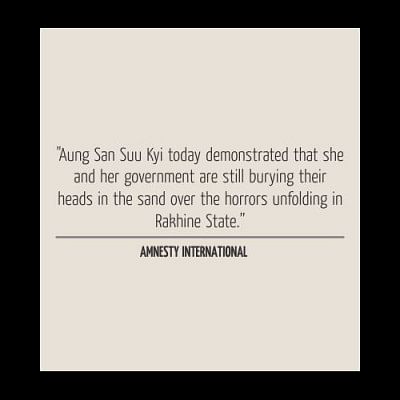
REPATRIATION PLEDGE
"Those who have been verified as refugees from this country will be accepted without any problems," Suu Kyi said.
In less than a month just under half of Rakhine's one-million-strong Rohingyas has poured into Bangladesh, where they languish in overcrowded refugee camps.
The subject of their claims to live in Myanmar is at the heart of a toxic debate about the minority group, who are denied citizenship by the state and considered to be illegal immigrants.
Suu Kyi's repatriation pledge "is new and significant", said Richard Horsey, an independent analyst based in Myanmar, explaining it would in principle allow for the return of those who can prove residence in Myanmar -- rather than citizenship.
But in Bangladesh, there was anguish among refugees over how they would meet any requirements.
"We don't have any papers," said 55-year-old Abdur Razzak.
"If the government is honestly speaking to resolve our crisis then we are ready to go back now," he added. "Nobody wants to live in such squalid conditions as a refugee."
When queried about identification papers, a number of refugees in a camp in Teknaf told The Daily Star that they could not either bring any documents while fleeing for life or those were burned in the fires set by the security forces.
Some even pointed out that they had never even received any such documents despite applying for them on several occasions.
WELCOMED BY INDIA, CHINA AND RUSSIA
"It was an encouraging address and contained a very positive message," India's Ambassador to Myanmar Vikram Misri told the media.
"I think we all appreciate the problems and complex challenges that Myanmar faces," he said.
"The situation that has come about in Rakhine State in recent days is something that has caused a lot of concern to not only people within the country but its neighbours, including us, too."
In his remarks to the media, Misri said India has shared its concerns over the issue at various levels.
He added that while India recognised the right of the authorities to provide security and defend themselves from violent attacks, it was also important to prevent violence against innocent bystanders and civilians.
Hong Liang, Chinese ambassador to Myanmar, said Suu Kyi's speech would improve understanding.
"China's position is very clear. We support the Myanmar government's effort to restore the peace and stability in Rakhine," said the envoy.
"I think this is a very good speech. It will help the international community have a better understanding of the situation here in Myanmar and in Rakhine and help the international community have a better understanding of the position held by the Myanmar government."
Nikolay A Listopadov, Russian ambassador to Myanmar said there was no evidence of ethnic cleaning.
"There are not reliable proofs, evidence to make such a condemnation, genocide and ethnic cleansing, no evidence," said the ambassador.
"As a first step I think it was a good speech, a good message to the international community. I am sure further steps will follow because the message is quite clear that Myanmar is ready to cooperate with the international community, [and] is ready just to pay attention to all the concerns and worries of the international community."
'CATEGORICALLY UNTRUE'
Suu Kyi began the address by underscoring the delicate nature of Myanmarese democracy and how little time her own party had been in power.
She claimed that all people living in Rakhine have access to education and health care services "without discrimination".
But CNN correspondent Ivan Watson, who has travelled to Rakhine and visited Rohingya settlements, said the claim was "categorically untrue".
Suu Kyi claimed government efforts to resolve the conflict have been complicated by what she termed "allegations and counter-allegations."
"We have to listen to all of them. We have to make sure those allegations are based on solid evidence before we take action," she said.
"We want to find out why this exodus is happening. We'd like to talk to those who have fled, as well as those who have stayed."
Watson, who covered the speech, tried to question Suu Kyi about the allegations of ethnic cleansing as she left the auditorium, but was ignored by the state counsellor.
Suu Kyi twice claimed that September 5 was the date of the last reported armed conflict, while simultaneously underscoring that more than "60% of the Muslim villages" remained intact.
Refugee testimonies, however, appear to contradict this, with many claiming that clearance operations are ongoing. The spike in refugee numbers between September 5 and 18 also suggest the conflict is far from over.
Analysts also say Suu Kyi had made a political calculation that speaking out more strongly on the Rohingya would have cost her support within the country.
Rohingya families have lived in Rakhine for decades.
The government does not use the term "Rohingya" and does not recognise the people as an official ethnicity.
Penny Green, a professor of law at Queen Mary University, called out Suu Kyi's connection of the Rohingya to the ARSA militant group as behaviour common among those targeting an ethnic group.
"She chooses to use the word in relation to a terrorist group, that means that is the only identity that Rohingya will be attached to, from her perspective and she hopes from the international perspective."
Green said Suu Kyi's speech was "disingenuous" and "filled with underlying denials" that she said was "typical of the way in which state criminals behave."
[From CNN, Reuters, AFP, New York Times and IANS]
Who said what on Suu Kyi's speech
VIKRAM MISRI
India's Ambassador to Myanmar
"It was an encouraging address and contained a very positive message. I think we all appreciate the problems and complex challenges that Myanmar faces."
HONG LIANG
Chinese ambassador to Myanmar
"China's position is very clear. We support the Myanmar government's effort to restore the peace and stability in Rakhine."
NIKOLAY A. LISTOPADOV
Russian ambassador to Myanmar
"There are not reliable proofs, evidence to make such a condemnation, genocide and ethnic cleansing, no evidence."
SEIN WIN
Myanmar defence minister
"We will protect the ones who are in line with the law ... There are still many Muslim villages. We are taking good care of them," he said, as he arrived for Suu Kyi's speech.
IN MAUNG SWE
Secretary, Rakhine State govt
He praised Suu Kyi for her "transparency" but was not optimistic about her pledge to promote harmony between Muslims and the largely Buddhist ethnic Rakhine communities in the state.
"The situation is ready to explode. It just needs a single spark."
PHIL ROBERTSON
Human Rights Watch deputy director, Asia Division
In response to Suu Kyi's statement that army clearance operations have ceased since Sept 5 - "If that is true, then who is burning all the villages we've seen in the past two weeks?"
PAUL EDWARDS
Unicef deputy representative in Myanmar
"We have to take at face value what she said about there being no further military operation since Sept 5. But of course none of us really know what's happening there if we're not there."
MARZUKI DARUSMAN
Chair of the Independent International Fact-Finding Mission on Myanmar
"Two main issues emerge ... the categorical readiness of the government of Myanmar to receive back returnees at any time on the basis of a procedure that will have to be discussed at some point. And secondly, the readiness of the government to undertake to be globally scrutinised by the international community. These two points bode well."
ANDREW KIRKWOOD
UN Office for Project Services director and representative in Myanmar
He welcomed Suu Kyi's announcement that diplomats could travel to Rakhine state to see the situation for themselves.
"I think that that is a positive
statement and we wait to see
what follow-up there is."
Source: Reuters, IANS

 For all latest news, follow The Daily Star's Google News channel.
For all latest news, follow The Daily Star's Google News channel. 

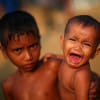
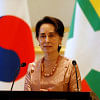
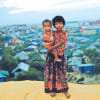
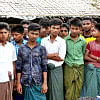
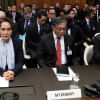


Comments